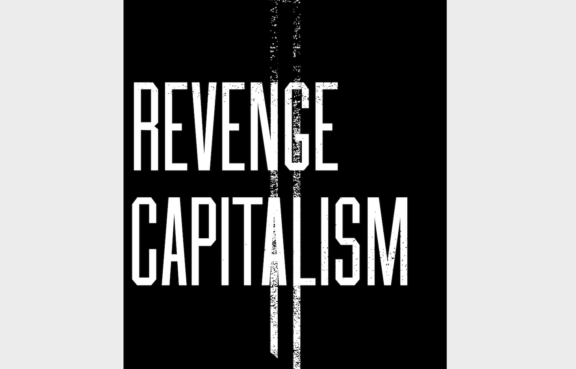- In the early twenty-first century, we live in capital’s utopia—not a utopia for particular capitalists, but a utopia for capital itself, where the world is reconfigured to suit its needs, where all values must articulate themselves in its arithmetic. Living in someone else’s utopia leaves you with nothing but revenge, if for no other reason than that, for the utopians, any meaningful resistance or rebellion, no matter how benign, is only intelligible as bestial revenge.
- Perhaps all systems of oppression and exploitation, including capitalism, are held in place in part by the preemptive revenge of the powerful, justified as a necessary precaution against the coming vengeance of the oppressed.
- Capitalism claims to have banished the human curse of revenge to its borderlands, but revenge is at its heart, operating not only at the level of far-right revanchist politics, but through the allegedly neutral logic of accumulation.
- Perhaps all systems of domination routinely take vengeance against those whom they oppress as part of their regimes of repression. But capitalism is unique in that its vengeance emerges from the contradictions of the system itself, without the necessary intent, malice or hatred of any particular individual.
- Capitalism not only takes revenge; it also shapes how we imagine what revenge is and who is guilty of it, hiding its own systemic vengeance while transforming individualistic narratives of revenge into popular cultural commodities.
- Revenge capitalism presents itself as pax mercatus, the final sublimation of the human tendency towards vengeance in mutually beneficial market competition, the savior of humanity from itself.
- While its liberal pundits decry the rise of resentment, anger, and polarization in our age, revenge capitalism breeds and thrives on revenge politics, mostly but not exclusively in reactionary valances, where visions of better collective futures are replaced by vindictive spectacle, typically targeting those already oppressed, cast out or rendered vulnerable.
- The vengeance of capitalism grows out of and is entangled with the vengefulness of patriarchy and colonialism and it perpetuates these forms of vengeance in marketized forms—vengeful entrepreneurial massacres by white men (some of them in uniform) are one result.
- The authors and beneficiaries of revenge capitalism have names and addresses, but they are also each completely replaceable, complicating struggles for liberation and historical vindication. No simple revenge against “them” will suffice to abolish their world.
- The easy condemnation of a politics of revenge is usually the narcissism of the privileged; sometimes, a revenge fantasy is all you have. Sometimes it can catalyze something revolutionary.
- Beyond the deadlock of revenge fantasy, an avenging imaginary stems from the reckless determination that what you love has value in a world where it is otherwise rendered worthless. It is not just a turning of the tables but their overturning. It is not the claiming of a debt but the recognition that the debt is unpayable within a murderous economy.


